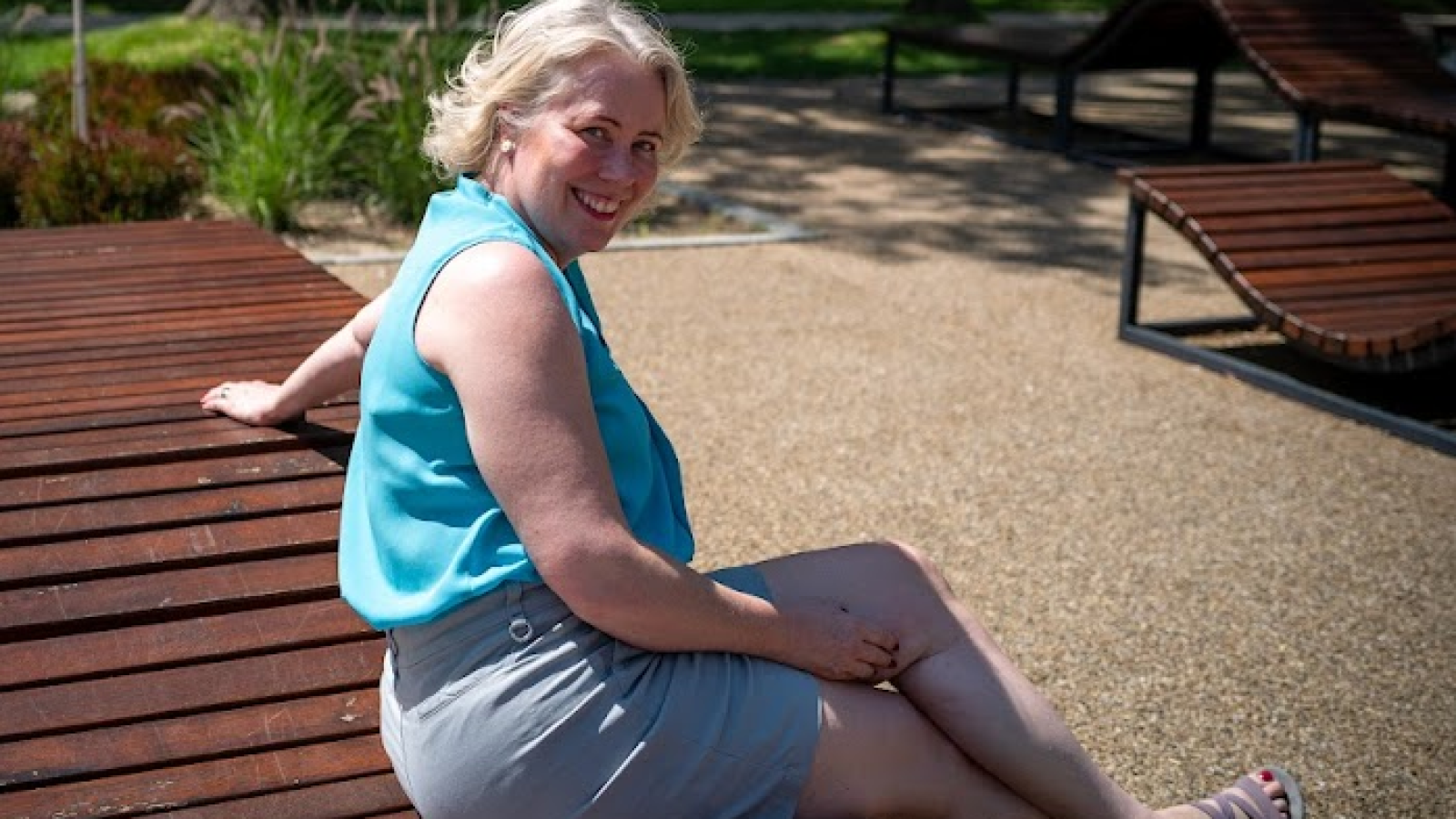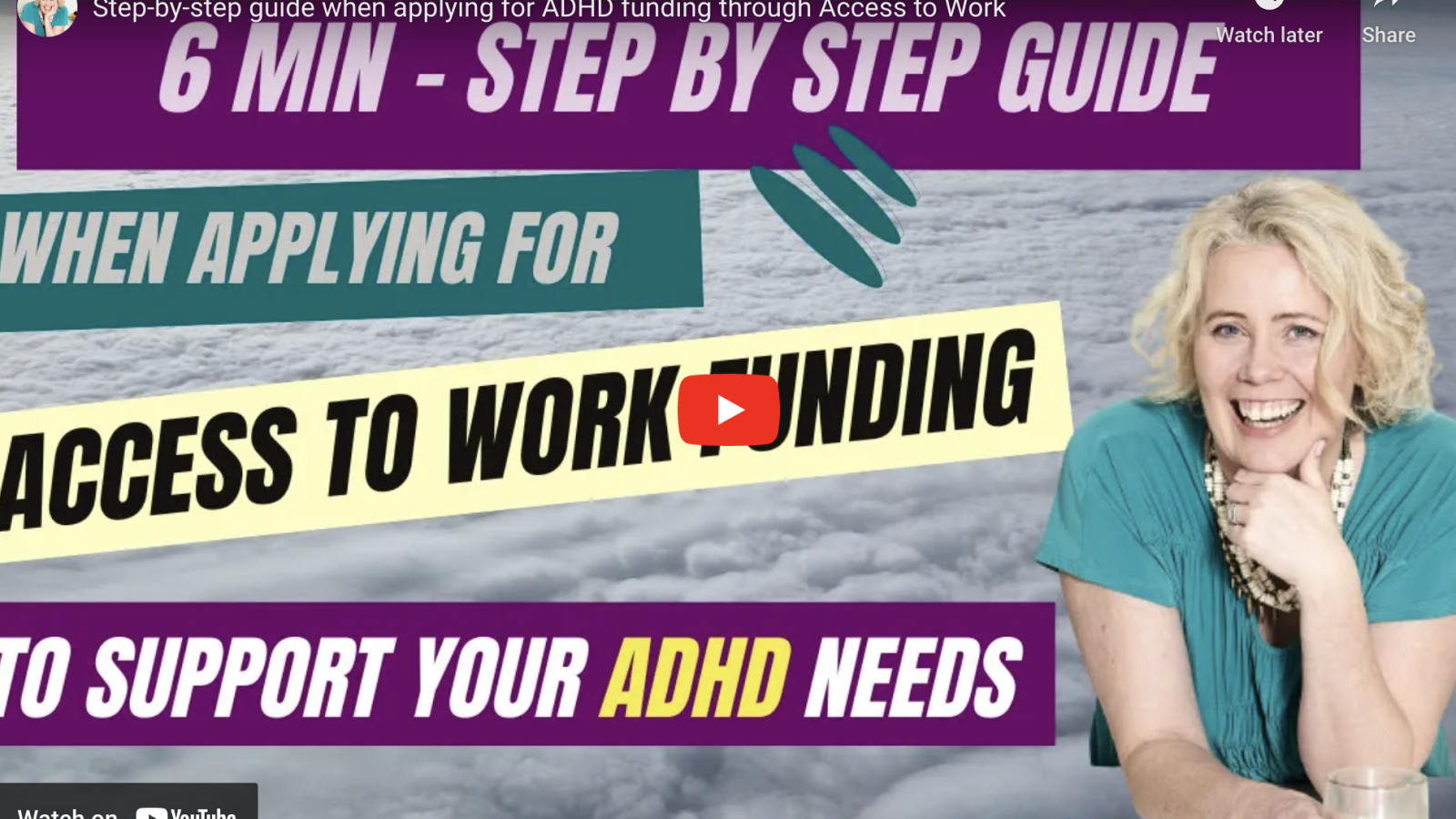by Tina Squire
•
15 July 2025
It’s probably one of the most common questions I hear, whether it’s from employees trying to figure out what to ask for, or managers nervously Googling how to “do the right thing.” The honest answer? There’s no universal list. No neat handbook that says, “if you have ADHD, you’ll need exactly these things.” Because the truth is, even the most enlightened employers aren’t experts in your brain. If you’ve met a hundred people with ADHD, you’ve met a hundred entirely different brains. However it doesn’t have to be dramatic or expensive. In fact, the best adjustments are often small, human, and tailored to how your brain actually works. That’s why the most important part of this conversation isn’t the list of possible adjustments. It’s understanding what actually works for you. Asking yourself What lights you up at work? When do you feel most settled and focused? What situations leave you scattered, drained, or second-guessing yourself? In my coaching and the resources we’ve created at Adeptina, we always come back to this: adjustments start with self-awareness. Whether it’s noticing you do your best thinking out loud, or that you crumble in noisy spaces, or that written follow-ups keep your working memory from short-circuiting, these are gold dust insights. They’re what allow you to move beyond generic “ADHD tips” and build support that fits you. So if you’re asking, “What are reasonable adjustments for ADHD at work?”, here’s where I’d encourage you to begin: by getting curious about your own patterns, strengths, and needs. Because once you know that, it becomes so much easier to advocate for changes that truly make a difference. How do you figure out what adjustments you actually need? This is often where people get stuck. Even in workplaces that are supportive, many managers will still turn to you and say, “So, what do you need?” It’s a great question, and a hard one. Because if you’ve spent years quietly masking or muddling through, it might not be obvious. So here’s where to start 1. Look for patterns Take a moment to reflect on your typical workday or week. You might ask yourself: What are the moments that consistently trip me up or drain my energy? When do I procrastinate or spin out, even if I care about the work? When have I felt most calm, engaged, or even proud? For example, maybe you notice that long meetings without an agenda make your mind ping off in twenty directions. Or that you always think of your best ideas after you’ve left the meeting room. That’s useful data. It might point to needing agendas in advance, or permission to share follow-up thoughts later. 2. Think about how you process best In our guides, we often encourage people to notice: Are you someone who needs to see it, say it, or move around it? If you’re a visual processor, maybe you need diagrams, mind maps, or a Kanban board to feel organised. If you’re a verbal processor, regular check-ins where you can talk things through might make all the difference. If you thrive on movement, perhaps a walk-and-talk meeting beats a formal sit-down every time. Understanding your brain’s preferred way of taking in and working through information is like unlocking the instruction manual that was missing all along. 3. Dig into what’s helped (or hurt) before Sometimes it’s easier to start by looking backwards. When in the past have you felt most on top of things at work? What was in place then? Was it a clear routine? Was it a manager who sent everything in writing? Was it a role where you could work in intense sprints, then rest? Equally, noticing what hasn’t worked can be just as clarifying. The goal isn’t to pick yourself apart — it’s to gather clues. 4. Keep it practical, not perfect It can be tempting to look for some perfect solution. But most adjustments are simple. They’re tweaks that make it easier to show up as you, not constant workarounds to hide who you are. That might mean: Using noise-cancelling headphones in a busy office Getting project instructions in writing, not just a quick chat Having a short recovery window after intense meetings Or scheduling your most complex work for the time of day when your brain is actually online It sounds simple, but it’s powerful. Because reasonable adjustments aren’t magic. They’re often small, targeted tweaks that make your natural way of working easier. A few examples to get you thinking Sometimes we overcomplicate this. Reasonable adjustments can sound like a formal, intimidating thing. But in reality, they’re often small, thoughtful changes that make your brain’s job easier. Here are a few examples I’ve seen make a genuine difference for people with ADHD at work: Visual project trackers If your brain can’t hold all the moving parts in working memory (honestly, whose can?), having a visual way to see tasks laid out, like a Kanban board, Trello, or even sticky notes on a wall can bring huge relief. It’s about externalising your thoughts so your brain doesn’t have to carry them all at once. Flexible start times Maybe you’re sharper mid-morning, or you crash by 3pm. Being able to start and finish slightly earlier or later can help you match your energy curve, instead of fighting it. Regular “think out loud” sessions If you process ideas by talking them through, it might help to have a standing 15-minute check-in with your manager or a trusted colleague. Just space to verbalise where you’re at can bring clarity and avoid weeks of circling confusion. Written follow-ups If you’re someone who leaves a meeting full of ideas, only to realise later that you can’t remember half of them, ask for a short summary afterwards. Even bullet points can take the pressure off your memory and give you a stable reference point. Permission to step away Open-plan offices can be a sensory gauntlet. Sometimes the adjustment is as simple as having the green light to move to a quieter space or pop on headphones without feeling like you’re being rude. Combining sprints with recovery If you tend to hyperfocus or work in intense bursts, you might also need a conscious buffer afterwards, time to decompress or switch to easier tasks. Building that into your routine can prevent the all-too-common energy hangover. None of these is huge or particularly fancy. But they work because they’re specific to how your brain operates. They take what’s already true about you and make it easier, not harder, to do your job well. A little note on figuring this out I appreciate that spotting these patterns, and making sense of what they mean for you in real life it’s not always something you can do alone. It’s one thing to know you’re tired after certain tasks or that meetings leave your head spinning. But it’s another to really see the thread running through it all. To notice that, oh, this is actually about how you process information, or what energises you, or where your brain’s bandwidth gets eaten up. This is a huge part of what coaching is. There’s a skill (and a kind of deep listening) that we bring. Someone can be telling me a story about a random day at work, or how they handle Monday mornings, or why they hate Slack notifications and under all of that is so much data. About how they think, what their strengths are, where the friction is. It’s often from these ordinary stories that we start to uncover the gold. And that’s what helps turn vague frustrations into actual adjustments you can ask for, that make a difference. So if you’re still wondering “What are reasonable adjustments for ADHD at work?” it really comes down to this: They’re whatever helps you do your best work, with less friction and more ease. They’re whatever bridges the gap between how your brain naturally operates and the demands of your role. And figuring them out, whether that’s on your own, with a trusted friend, or with a coach who knows how to listen between the lines, is one of the most worthwhile things you can do. Whether it’s a small tweak to how meetings run, a bit more visual structure, or simply being able to work when your brain’s switched on, these are all valid. They’re reasonable. And you’re allowed to ask.









